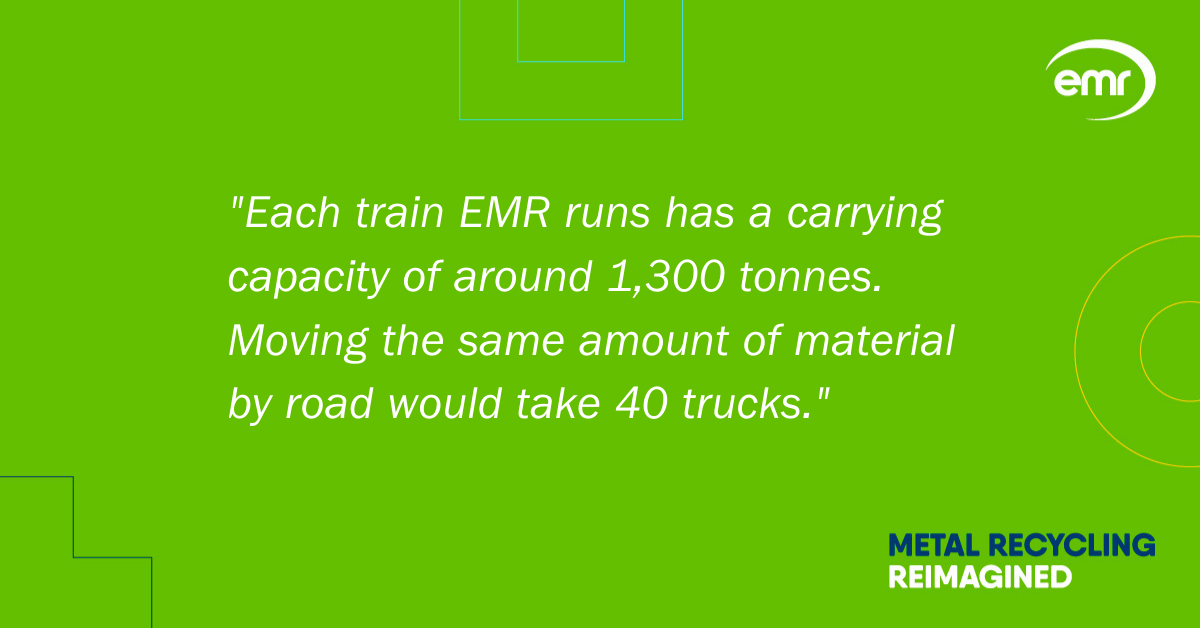CHOOSE
A DIFFERENT TERRITORY
As EMR works hard to meet its net-zero target by 2040, our use of rail offers a great example of some of the benefits that decarbonising our operations can bring.

To fully understand the opportunities that rail can provide, it’s important to understand the significant role it already plays in our business.
Here in the UK, EMR works closely with our rail freight partners to move materials to our deep-sea docks as well as to customers where possible.
We use two sets of railway wagons that are known as MBAs (or Monster Boxes). Each set includes 18 wagons with an individual capacity of 84 cubic meters and a potential payload of 72 tonnes. This means that each train EMR runs has a carrying capacity of around 1,300 tonnes.
Moving the same amount of material by road would take 40 trucks. Loading one single train instead means less traffic on our roads, less congestion at our sites and frees up our road weighbridges to provide faster service for customers who deliver their scrap to us.
We run these trains six to seven times per week from sites such as Sheffield, Birmingham or Swindon into our Liverpool Docks site for shipping around the world. Rail connected customers can also have material delivered directly to their operations from EMR.
And, as EMR and its partners look to cut carbon emissions out of their supply chains, switching to rail provides significant benefits.
DB Cargo, our rail service provider, provides regular sustainability reports. It has calculated that all rail freight in the UK avoided approximately seven million HGV journeys through 2018 to 2019. The carbon footprint of rail freight is significantly less than road and DB Cargo suggests EMR is saving around 8,000 tonnes of CO2 emissions thanks to the use of its rail freight services.
Unsurprisingly, then, this is an area of our UK operations we’re keen to invest in. EMR is increasing the number of trains it will operate in the future to up to nine per week. That means a further reduction in our road use will help us to move yet closer to our ultimate aim of net-zero carbon impact.
And because of these benefits, it’s an area we’re investing in globally. Our latest shredder site in Becker, Minnesota, includes a new $2.5 million rail line to enable the business to load wagons for distribution across the country, again cutting the number of trucks needed to transfer material long distances.
While moving more material by rail makes sense for EMR, it is important to note that rail is not yet a fully net-zero method of transport.
As technology progresses in the years ahead, we hope the arrival of hydrogen-powered trains and a decarbonised electricity supply for our rail networks will ensure that, by 2040, our use of rail is entirely carbon neutral.
As EMR looks to make changes to the way it operates on that path in the coming years, it’s clear that this centuries-old method of transport will have a major role in our sustainable, net-zero future.
Read about our sustainability commitments and our plan to be net-zero by 2040.